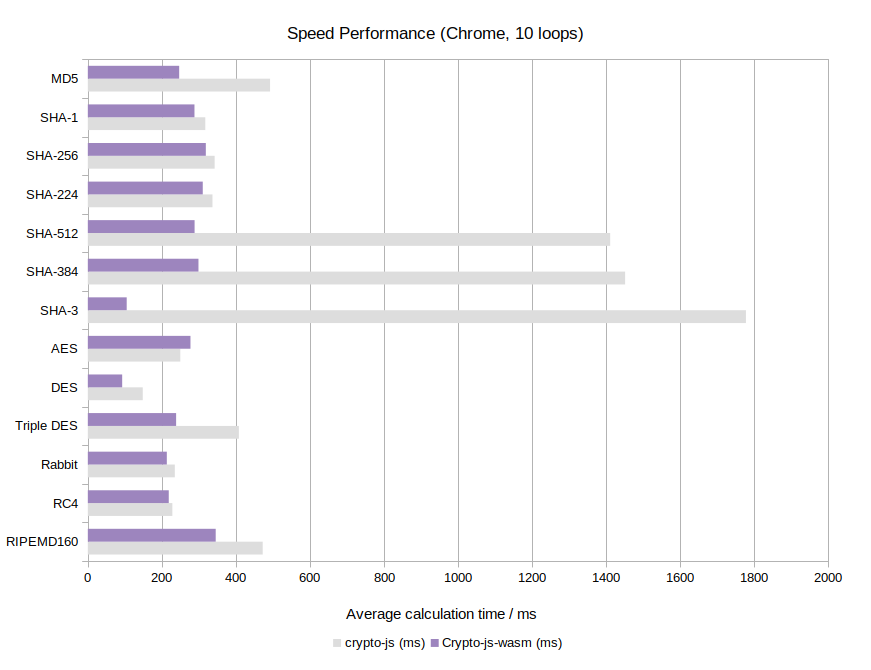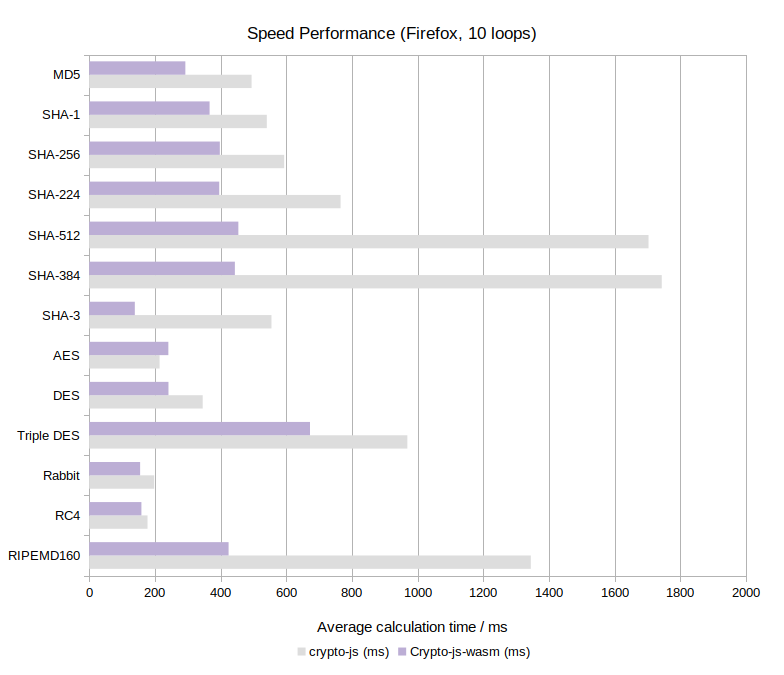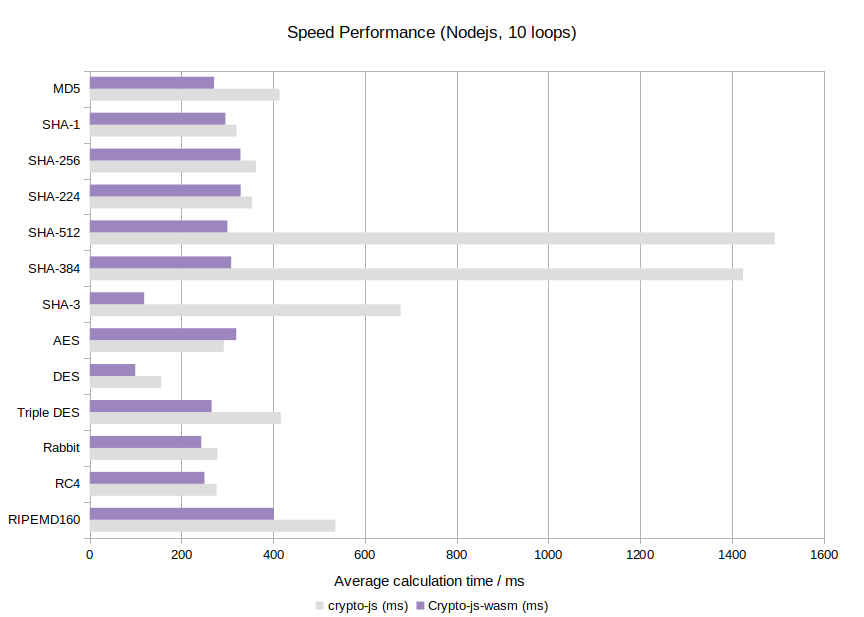crypto-js-pro v0.0.2
crypto-js-pro
crypto-js-wasm is a javascript library of crypto standards. Inspired by crypto-js, but now powered by WebAssembly.
- Safe: The process of encryption is fully enclosed and invisible thanks to WebAssembly
- Efficient: Up to 16x faster than crypto-js (see Benchmark)
- Compatible: Has the same API with crypto-js
- Browser & Nodejs: Support both
browserandnodejs - Versatile: 15+ crypto standards supported, including MD5, SHA-x, AES, RC4, etc
- ESM: Written in ESM, build as UMD for compatibility
Getting started
npm install crypto-js-proor
pnpm install crypto-js-proor
yarn add crypto-js-proUsage
Note that the async function loadWasm() should be called once (and once only!) for each algorithm that will be used, unless loadAllWasm() is called at the very beginning.
import CryptoJSW from 'crypto-js-wasm'
// (Optional) load all wasm files
await CryptoJSW.loadAllWasm()
// Async/Await syntax
await CryptoJSW.MD5.loadWasm()
const rstMD5 = CryptoJSW.MD5('message').toString()
console.log(rstMD5)
// Promise syntax
CryptoJSW.SHA256.loadWasm().then(() => {
const rstSHA256 = CryptoJSW.SHA256('message').toString()
console.log(rstSHA256)
})Please note that HMAC does not have a loadWasm, as a hasher must be specified if you want to use HMAC (i.e. HmacSHA1).
And the loadWasm in pbkdf2 only calls SHA1.loadWasm as SHA1 is the default hasher of pbkdf2. If you specified another hasher, the corresponding loadWasm of the hasher should be called repectly. Same case in evpkdf/MD5 as MD5 is the default hasher of evpkdf.
Available standards
- MD5 / HmacMD5
- SHA1 / HmacSHA1
- SHA224 / HmacSHA224
- SHA256 / HmacSHA256
- SHA384 / HmacSHA384
- SHA512 / HmacSHA512
- SHA3 / HmacSHA3
- RIPEMD160 / HmacRIPEMD160
- PBKDF2
- EvpKDF
- AES
- Blowfish
- DES
- TripleDES
- Rabbit
- RabbitLegacy
- RC4
- RC4Drop
Coming next
- RSA
Benchmark
The benchmark below is run on a desktop PC (i5-4590, 16 GB RAM, Windows 10 Version 21H2 (OSBuild 19044, 1466)).
Chrome 102.0.5005.63:

Firefox 101.0:

Nodejs v16.6.4:

Development
# install dependencies
pnpm install
# build for production
pnpm run build
# run all tests
pnpm run test
# run all tests with coverage
pnpm run coverageWhy do we need a async loadWasm call?
This is because the WebAssembly binary needs to be load by WebAssembly.instantiate, and it is async.
The async WebAssembly.instantiate is recommended instead of its sync variant WebAssembly.instance, and in many cases the WebAssembly.instance can not load WebAssembly binary whose size is not small enough.
Why do we store wasm binaries in base64-encoded chars?
This is because crypto-js-wasm may be used in browser or nodejs. This is relative elegant implementation comparing with wasm loader in browser(powered by webpack, vite or something else) or fs in nodejs.
License
Distributed under the Mulan Permissive Software License